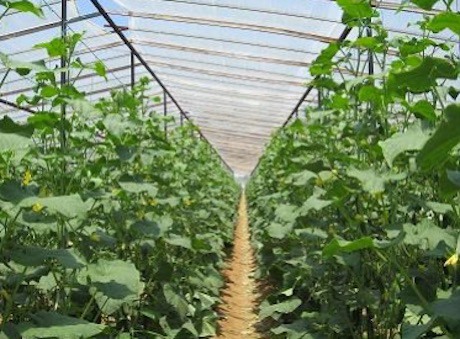Now that the political issues between Turkey and Russia seem to be partly resolved, Turkish agriculture is said to show an upward trend again. Exports of Turkish produce to Russia are slowly picking up and growers in the concentrated greenhouse areas of Antalya, Adana and Mersin are seeing better times ahead.
According to Necdet Yabaş, the Turkish horticulture industry is robust enough to withstand the recent export bans from Russia. "Every industry has good and bad years. The stagnating market did cause some troubles for some growers, but most of them found alternative markets and others are already picking up their exports to Russia."
Yabaş experiences the situation in Turkey from up close, as he works for Doğal Tarım, a large Turkish company that is active in the supply of fertilizers, crop protection and other agricultural and horticultural supplies to Turkish growers. "Russia and Ukraine are again the main export markets for fresh produce and the growers are starting to make money again. Russia simply does not have enough domestic production available, so they rely on countries like Turkey for the supply of their fruit and vegetables."
Doğal Tarım has been serving Turkish farmers and growers for more than 20 years. Yabaş said that the 60,000 hectares of protected crops in the country accounts for a large part of their business. "While we manufacture many products for open field agriculture, the greenhouse industry also covers a large part of our business."
According to Yabaş from the 60,000 hectares of greenhouses in Turkey, about 25,000 hectares consist of more modern and present day style greenhouses and tunnel production. For this group of growers they have a range of products available, from nutrient solutions, insecticides, pesticides, herbicides, plant growth regulators and other crop protection solutions towards more dedicated innovative technologies like greenhouse shader systems.
Yabaş explained that Turkish horticulture is a competitive market. "It is a good and large market, but in regards to supplies, there is much competition between large multinationals and local suppliers. This creates a challenging market as Turkish growers are mainly asking for a lower priced product."
However, Yabaş does see some changes on the horizon as a new generation of growers are willing to learn about the advantages of better quality products.
As an example, Yabaş spoke about their greenhouse shaders. Most of the Turkish growers are using a cheap chalk product to coat their plastic or glass greenhouses and protect their crops against the heat from the sun. They know the disadvantages of cheaper products, but quite often don't feel the need for improvement.
"That is changing now slowly as we are informing them about our more advanced shading agent that lasts longer, doesn't easily wash off due to rain and gives them better results."
Dogal needed to convince the growers why it was worth investing in a more expensive alternative to shade their greenhouses. They explained to them how the advanced shaders protects their plants from the UV & IR light that creates the high temperature in the greenhouse and slows down the photosynthesis. By telling them how high levels of light cause stress that damages the chloroplasts, more growers became convinced of their shaders.
"It goes better every year, and more and more growers a seeing the benefits", said Yabaş. Yet, guidance and support remains a very important aspect, as well as trials and consultation on the use of the products."
For more information:
Doğal Tarim
Dr. Necdet Yabaş
Technical Marketing & Business Development
Tel: +90 216 3086587



